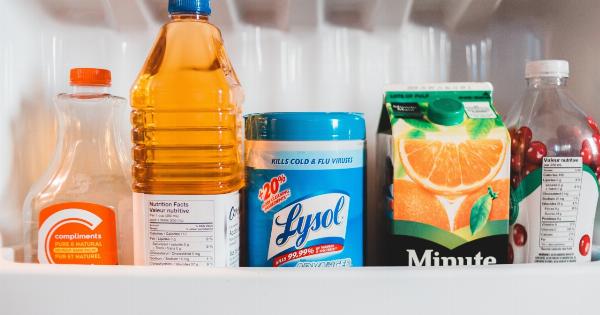Becoming a new mom is an incredible and transformative experience. Not only are you now responsible for this beautiful little human being, but you are also in charge of taking care of yourself.
One crucial aspect of postpartum recovery and overall well-being is maintaining a healthy diet. Your body needs the right nutrients to heal and to keep up with the demands of breastfeeding, if you choose to do so. Here’s a list of 15 essential foods that every new mom should incorporate into her diet.
1. Salmon
Salmon is packed with omega-3 fatty acids, which are beneficial for postpartum moms. These fatty acids can help reduce inflammation, boost mood, and support brain health.
Additionally, salmon is an excellent source of protein, which is vital for the growth and repair of tissues.
2. Leafy Greens
Leafy greens like spinach, kale, and Swiss chard are rich in vitamins, minerals, and fiber. They provide essential nutrients such as iron, calcium, and folate, which can help replenish your body’s nutrient stores after giving birth.
These greens can also boost your energy levels, support healthy digestion, and aid in weight management.
3. Greek Yogurt
Greek yogurt is an excellent source of protein and calcium. Protein is essential for tissue repair and recovery, while calcium is crucial for bone health.
Choosing Greek yogurt over regular yogurt provides extra protein and helps keep you fuller for longer, making it a great snack option for busy moms.
4. Quinoa
Quinoa is a highly nutritious grain that is packed with protein, fiber, and essential minerals. This versatile food can be used as a base for salads, added to soups, or served as a side dish.
Quinoa provides slow-digesting carbs that can provide sustained energy, keeping you feeling satisfied throughout the day.
5. Berries
Berries such as strawberries, blueberries, and raspberries are not only delicious but also packed with antioxidants and vitamins. These vibrant fruits can boost your immune system, reduce inflammation, and improve your overall health.
Berries are also a low-calorie and high-fiber option, making them an ideal snack for weight management.
6. Eggs
Eggs are a fantastic source of high-quality protein and contain essential nutrients like choline and vitamin D. Choline is important for the development of your baby’s brain, and vitamin D helps with calcium absorption and immune function.
Eggs are a versatile ingredient that can be incorporated into various dishes, from omelets to salads.
7. Lentils
Lentils are a legume that is rich in protein, fiber, and essential minerals. They are also an excellent plant-based source of iron, which is essential for preventing iron deficiency anemia.
Lentils can be cooked into soups, stews, or salads, offering a satisfying and nutritious addition to your diet.
8. Avocado
Avocados are a fantastic source of healthy fats, which are important for energy, brain health, and hormone regulation. They are also rich in fiber and a variety of essential vitamins and minerals.
Adding avocado to your meals or using it as a spread can help keep you feeling full and satisfied.
9. Nuts and Seeds
Nuts and seeds are nutrient-dense snacks that offer a wide range of health benefits. They are packed with healthy fats, protein, and fiber. Almonds, walnuts, chia seeds, and flaxseeds are excellent choices.
They can be added to smoothies, yogurt, or enjoyed on their own as a quick and easy snack.
10. Whole Grains
Whole grains such as oats, brown rice, and whole wheat bread are rich in fiber, vitamins, and minerals. They provide sustained energy, help regulate digestion, and support heart health.
Including whole grains in your meals can help you feel satisfied and provide necessary nutrients for your body’s recovery.
11. Lean Meats
Lean meats like chicken and turkey are excellent sources of protein and essential amino acids. Protein is crucial for tissue repair and can help you feel fuller for longer. When choosing meats, opt for lean cuts to minimize saturated fat intake.
Grilled, baked, or roasted options are healthier alternatives to fried ones.
12. Citrus Fruits
Citrus fruits, such as oranges, grapefruits, and lemons, are rich in vitamin C and other antioxidants. These fruits can help boost your immune system, promote collagen production for wound healing, and increase iron absorption from plant-based foods.
Enjoy them as a refreshing snack or add their juice to your water for a flavorful twist.
13. Dairy Products
Dairy products like milk, cheese, and yogurt are excellent sources of calcium and protein. Calcium is crucial for bone health, and protein supports tissue repair.
Opt for low-fat or skim versions to keep saturated fat intake in check, or choose plant-based alternatives if you’re lactose intolerant or following a vegan diet.
14. Dark Chocolate
Yes, you read that correctly – dark chocolate can be a part of your new mom’s diet! Dark chocolate contains antioxidants called flavonoids that can help reduce inflammation, improve heart health, and boost mood.
Just remember to enjoy it in moderation and opt for varieties with at least 70% cocoa content.
15. Water
Water is often overlooked but is perhaps the most essential component of a new mom’s diet. Hydration is crucial for overall health, maintaining milk supply if breastfeeding, and preventing constipation.
Aim to drink at least eight to ten cups of water daily, and more if you’re physically active or breastfeeding.
As a new mom, the demands on your body are high, and prioritizing your own health and nutrition is essential.
By incorporating these 15 essential foods into your diet, you’ll be providing your body with the necessary nutrients to heal, recover, and thrive during this beautiful and transformative phase of your life.





























